I have this picture with my two columns:
"povrsina" is area size in square meters. It can be classified in ranges, for example (0 < povrsina <= 10), (10 < povrsina <= 30), (30 < povrsina <= 60) etc...
"tipprod" can have textual values like "01", "05", "09", "04" etc...
I need to group all data I have by "povrsina" but in the given ranges. I have created helper table in access which looks like this:
You can see the ranges. I tried it with my main table but I am not sure if I get correct results. Is it really checking "povrsina" value against the range in my helper table?
How can I do this in Access 2000?

